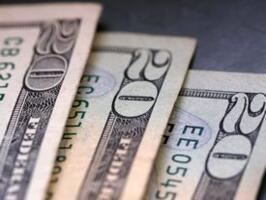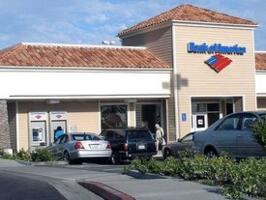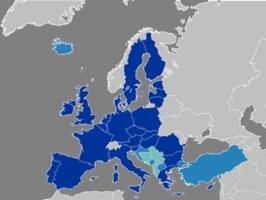A Special Prosecutor for Wall Street
A Commentary By Joe Conason
Debate over how to resolve the nation's financial emergency is taking a salutary direction for the moment, as politicians of both parties refuse to be herded by the Bush White House into a ridiculous $700-billion swindle. Before Congress approves such a stunning expenditure to save the undeserving hides of the super-rich, they may at least create provisions for independent oversight, new regulation, public equity and homeowner relief.
There is one more thing that should not be neglected, however. Before this is over, we will need a special prosecutor with an ample budget to find, prosecute, imprison and ultimately deter the criminals responsible for this disaster.
From the bottom-of-the-barrel bucket-shop mortgage salespeople, who sought inspiration and technique from the movie "Boiler Room," to the geniuses who packaged those bad and often fraudulent loans into bad paper for sale to major banks, investment houses and insurance companies, literally thousands of crooks are out there. Unless we find a way to bring them to justice -- starting at the top, by the way -- then the "moral hazard" inherent in any bailout will become even more acute.
Anyone who doubts that massive fraud is at the center of this crisis hasn't been reading between the lines. While much coverage in the business press has focused on tick-tock accounts of the final days of the big investment houses or the vagaries of the roiling market, there is no shortage of stories showing how we got into this morass.
The simple version of this decentralized criminal conspiracy can be summarized as follows: Mortgage lenders handed out loans to unqualified borrowers and sometimes tricked them into signing agreements they could not fulfill. Those same companies and others then marketed those loans with false assurances of their soundness to convince investors to buy them. Some of those investors then resold the packages of crap mortgages to other investors both here and abroad. Among the miscreants implicated in these activities were many with actual criminal records, whose entry into the mortgage industry was in no way hindered by the state regulatory agencies. They proceeded to amass fortunes large and small, using the same techniques familiar from previous financial scandals -- pressurized sales techniques; targeting of the weak, elderly and insecure; outright fraud, forgery and deception.
Which of the participants knew what was going on here? Which of them merely failed to perform any due diligence before passing along undue risk to the individual investors, pension funds and others to whom they owed fiscal prudence? Which companies and executives actively encouraged thievery, and which simply looked away while they booked big profits?
Those are the questions that must be sorted out by competent judicial authorities if we are ever to establish the rule of law in our markets. The FBI is currently investigating more than 20 lenders, including the defunct Indymac, but there is much more to be done -- and at the moment, the prosecutors seem to have set their sights too low. Someone with prosecutorial authority and resources should scrutinize the major players at UBS, Bear Stearns, Lehman Brothers and all the rest. The passage of the Sarbanes-Oxley law was meant to discourage this kind of financial chicanery by major firms. Now is the time to apply its criminal sanctions to those who flouted the law.
State authorities, whose years of incompetence and negligence led directly to the debacle, cannot be trusted to enforce the law now. In Florida, for example, which has suffered the worst of the national epidemic of mortgage fraud, the state regulators were recently found to have permitted thousands of brokers with criminal records -- including actual bank robbers! -- to enter the marketplace. The best estimate is that up to 25 percent of the mortgages recorded in the Sunshine State over the past few years were tainted.
Now, as the federal government prepares to take many or most of those bad loans off the books of the geniuses who bought them, what will prevent additional massive fraud? Only the threat of enormous fines and years of imprisonment can prevent these crimes from being repeated, at our expense. During the final decade of the last century, the nation spent well over $100 million on special prosecutors to investigate trivial and nonexistent offenses by public officials. We should be prepared to spend many times that amount in the years to come to get to the root of this gigantic scam, both to punish and to deter.
Joe Conason writes for the New York Observer.
COPYRIGHT 2008 CREATORS SYNDICATE, INC.
See Other Political Commentary.
See Other Commentary by Joe Conason.
Views expressed in this column are those of the author, not those of Rasmussen Reports.
Rasmussen Reports is a media company specializing in the collection, publication and distribution of public opinion information.
We conduct public opinion polls on a variety of topics to inform our audience on events in the news and other topics of interest. To ensure editorial control and independence, we pay for the polls ourselves and generate revenue through the sale of subscriptions, sponsorships, and advertising. Nightly polling on politics, business and lifestyle topics provides the content to update the Rasmussen Reports web site many times each day. If it's in the news, it's in our polls. Additionally, the data drives a daily update newsletter and various media outlets across the country.
Some information, including the Rasmussen Reports daily Presidential Tracking Poll and commentaries are available for free to the general public. Subscriptions are available for $4.95 a month or 34.95 a year that provide subscribers with exclusive access to more than 20 stories per week on upcoming elections, consumer confidence, and issues that affect us all. For those who are really into the numbers, Platinum Members can review demographic crosstabs and a full history of our data.
To learn more about our methodology, click here.



